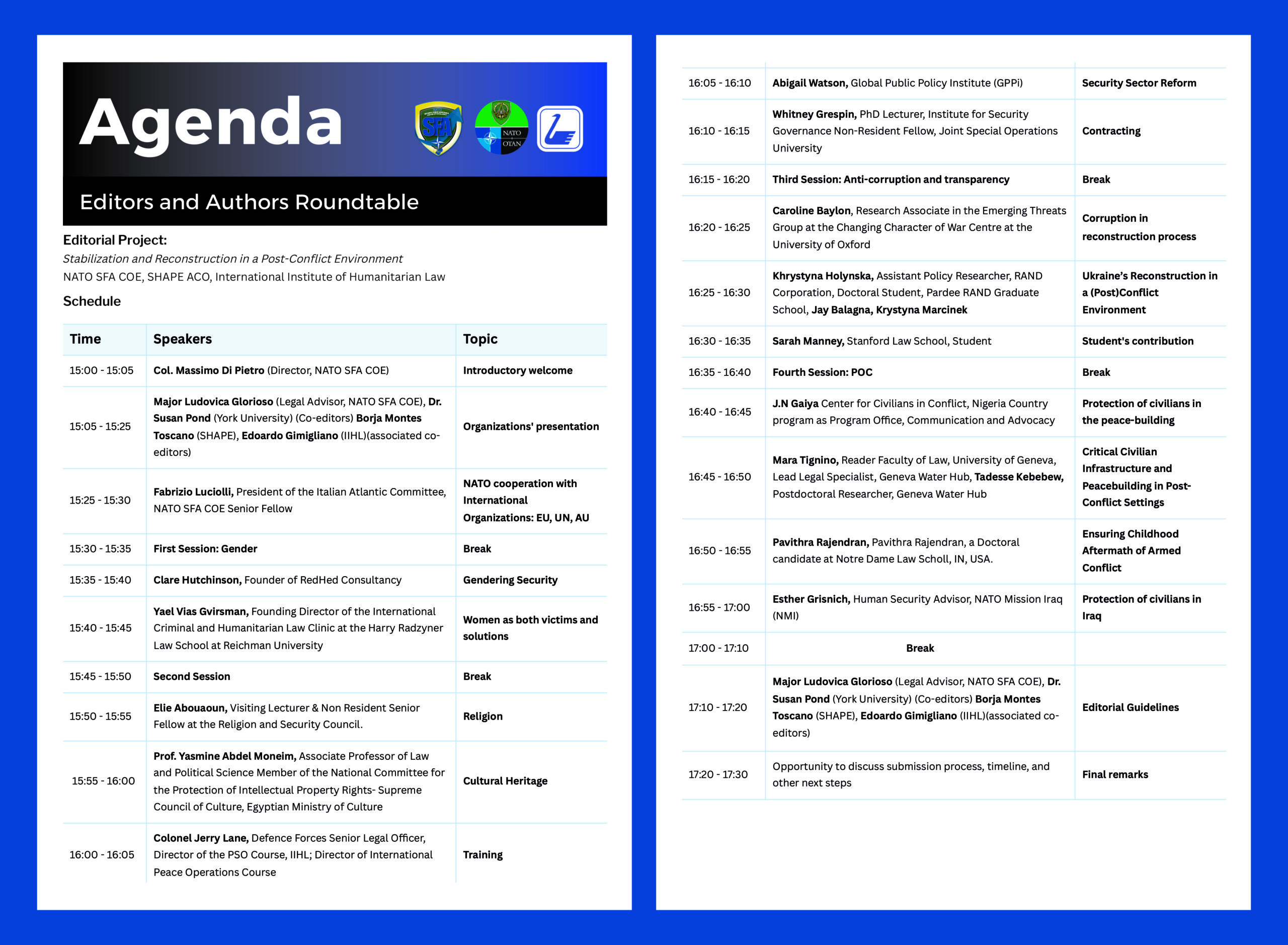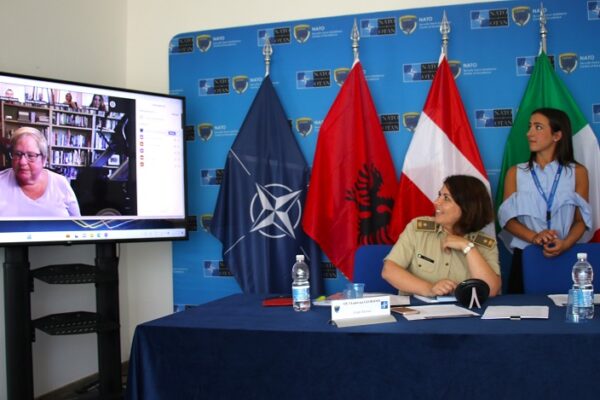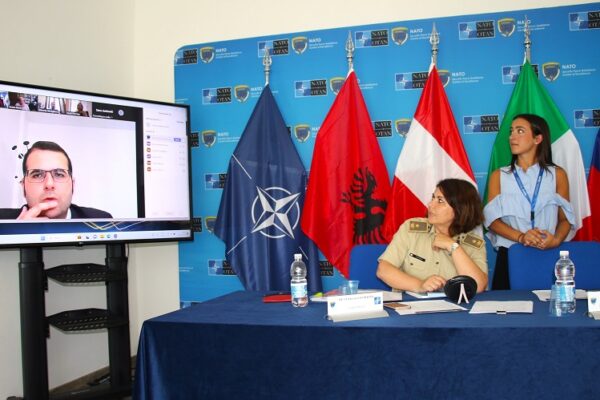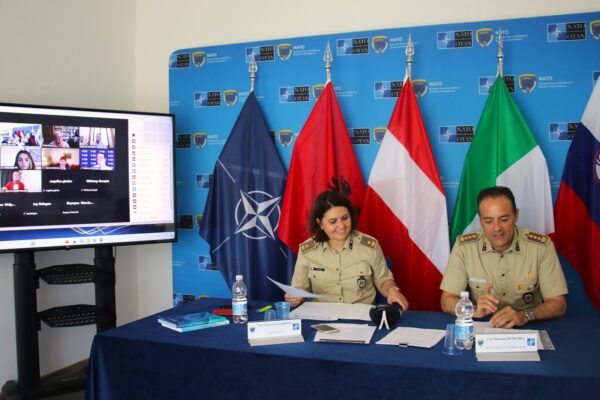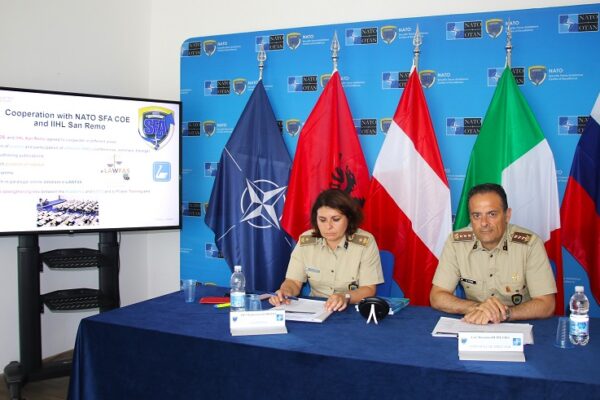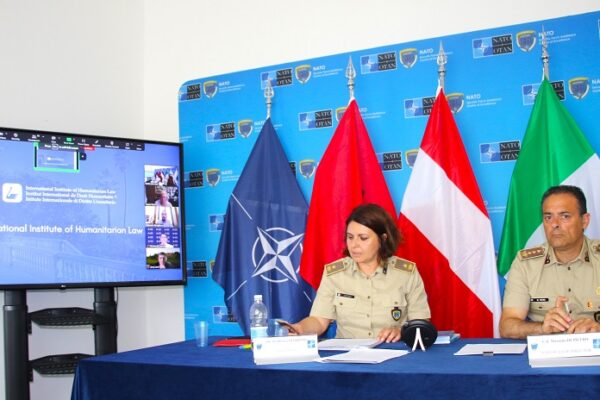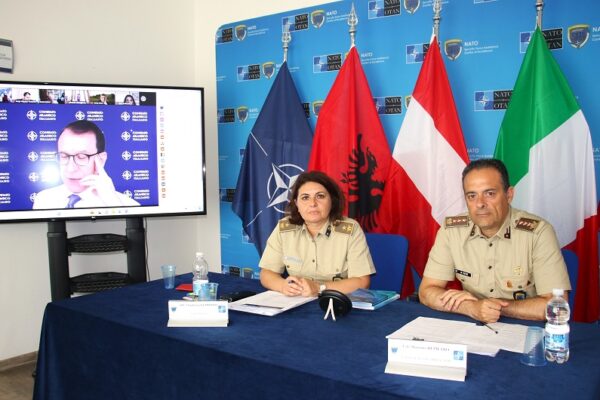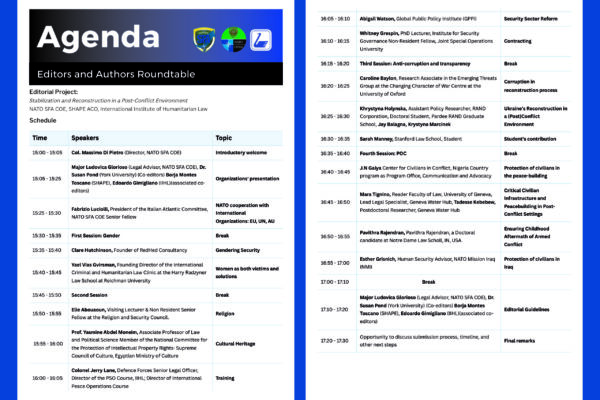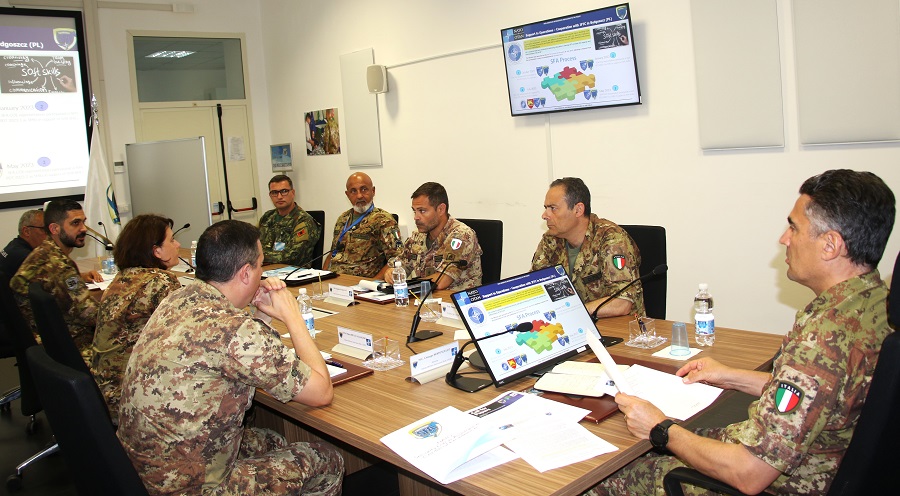On the 6th of July 2023, the NATO SFA COE held an Editorial Roundtable with authors of the upcoming book project on Stabilization and Reconstruction in a Post-Conflict Environment.
The NATO SFA COE Director, Colonel Massimo Di Pietro, opened the session with an overview of why post-conflict reconstruction is particularly important in today’s geopolitical context and where the Centre can help to encourage scholarship that will aid SFA advisors for years to come.
Participants then heard from the editors of the book: Major Ludovica Glorioso, Legad of the NATO SFA COE; Susan Pond, Senior Fellow at York University Glendon School of Public and International Affairs; Borja Montes Toscano of Supreme Headquarters Allied Powers Europe (SHAPE); and Edoardo Gimigliano of the International Institute of Humanitarian Law in San Remo. Professor Fabrizio Luciolli, President of the Italian Atlantic Committee and NATO SFA COE Senior Fellow, then delivered a strong address focused on the importance of SFA in dynamic and challenging contexts, emphasizing the need for interdisciplinary cooperation.
With authors representing a range of prestigious think tanks, institutes, universities, and multilateral bodies, including the NATO Mission to Iraq, the Roundtable convened four panels according to the main preliminary themes of the paper: gender; culture and institutions; anti-corruption and transparency; and protection of civilians. Authors shared short presentations on a range of diverse and relevant topics, with a focus on identifying areas of overlap and distinction within similar topics, and connections across thematic areas. For instance, authors discussed how chapters on religious and intercultural dialogue could apply a gender lens. Similarly, training effectiveness was a common theme across topics such as anticorruption, protection of civilians and preservation of cultural heritage.
The Roundtable benefited from the involvement and support of two Interns at the Centre: Martina Iafrate, of LUISS University in Rome, and Sarah Manney, of Stanford Law School in California. The internship is a valuable opportunity to learn about the work of the Centre of Excellence and affiliated institutions and contribute to the broader mission of NATO.
In line with the Centre’s mission to support academic collaboration and foster emerging research in the field of Security Force Assistance, the book project will provide an opportunity to highlight student research. Among our accepted authors are some students pursuing diverse degree programs in law, policy, economics and international relations at premier institutions around the world.
Overall, it was a fruitful session where authors learned more about the goals of the editorial project and the work of the Centre of Excellence, spoke about their diverse institutional affiliations, and contributed to exchange ideas and past experiences.
This book will be the third editorial project for the international community produced by the NATO Security Force Assistance Centre of Excellence, building on two previous publications on Promoting Rule of Law and Good Governance and Insights on Strategic Advising.








